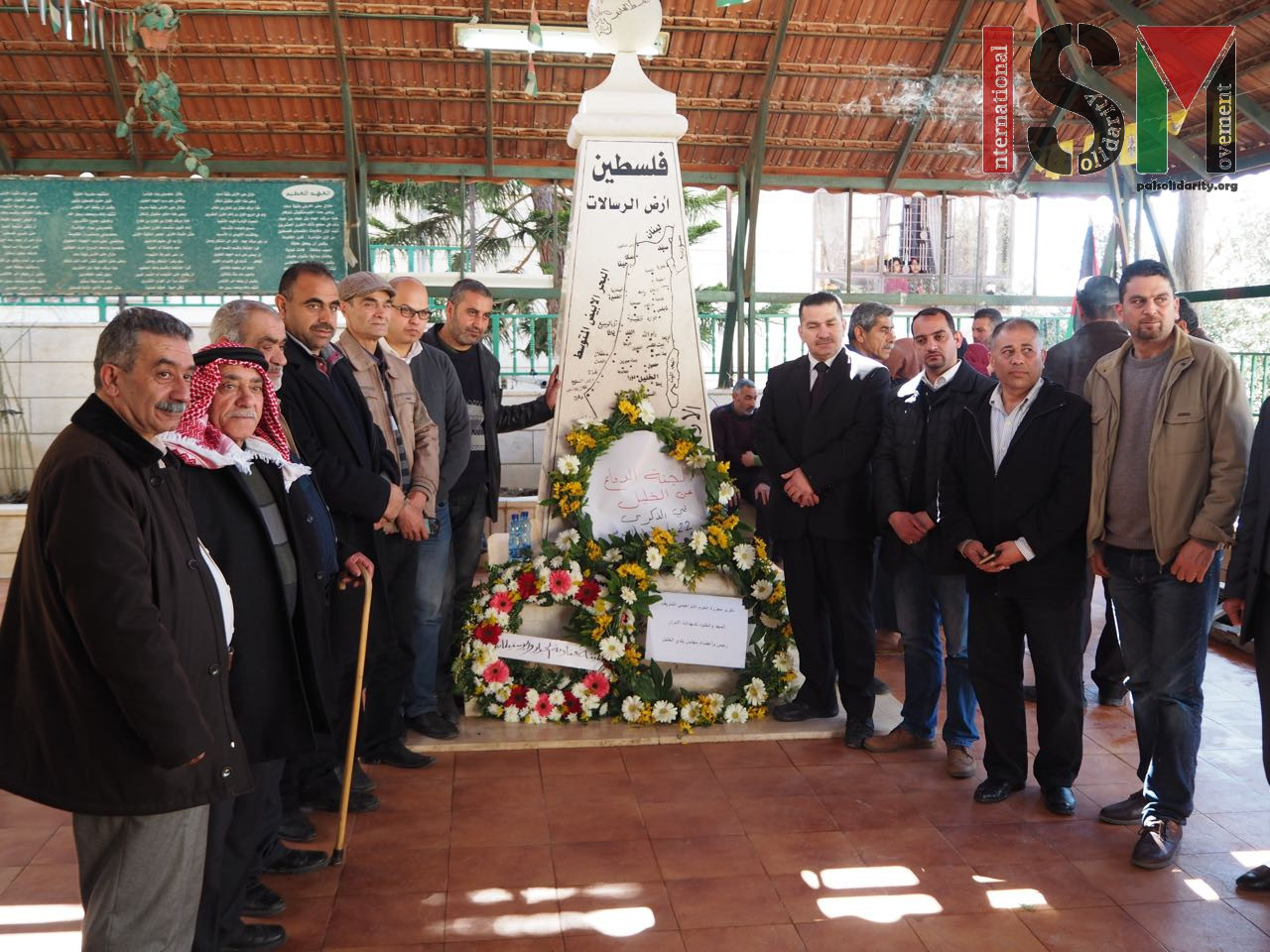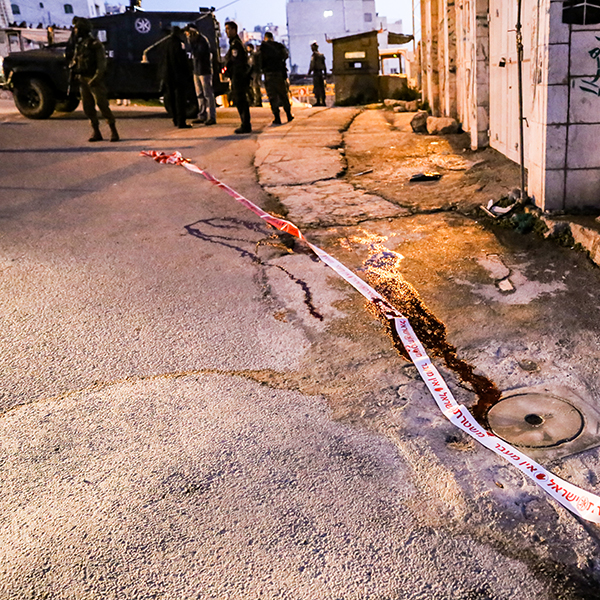Tag: Israeli Army
-
Wreath-laying in commemoration of Ibrahimi mosque massacre
25th February 2016 | International Solidarity Movement, al-Khalil team | Hebron, occupied Palestine 25 February 2016 marks the 22nd anniversary of the 1994 Ibrahimi Mosque massacre in occupied al-Khalil (Hebron). In commemoration of the Palestinians killed in this massacre, the Hebron Defense Committee (HDC) organised a wreath-laying at the martyrs cemetry. Baruch Goldstein, an Israeli…
-
Soldiers harass farmers preparing fields in Gaza
23rd February 2016 | International Solidarity Movement, Gaza-team | Khuzaa, Gaza Strip, occupied Palestine On Wednesday 17th February at 8 am, around 30 farmers from the village of Khuzaa reached their lands near the border. They intended to clean them from weeds before the beginning of the harvest season. They could work peacefully for about…
-
Children face fear and threat of violence after young woman shot in Hebron
22nd February 2016 | International Solidarity Movement, al-Khalil team | Hebron, occupied Palestine A day after 21-year old Yasmin al-Zarou was gunned down by Israeli forces when passing the Salaymeh checkpoint, many of the children were forced to walk right past where she had layn on the ground bleeding – where her blood is still…



